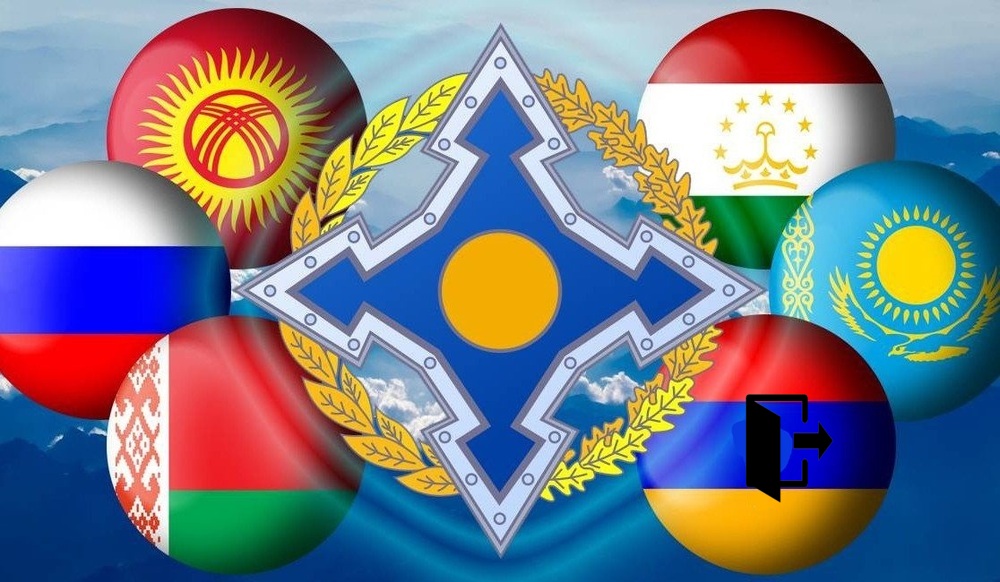
- Armenia has decided to withdraw from the CSTO after it accused the latter of inaction when Azerbaijan invaded Armenia in 2022.
- Speaking to the Armenian parliament, Pashinyan was very clear: ‘We will leave the CSTO,’ since he said that members of the alliance breached their contractual obligations.
- Armenia has been actively trying to enhance its relations with the countries of the West, conducting joint military exercises with the United States and appealing to the West for help in strengthening democracy in the country.
In a dramatic and unprecedented decision, the Armenian Prime Minister Nikol Pashinyan declared that Armenia will leave the Russian-led Collective Security Treaty Organization (CSTO). This decision signalled a change in the Armenian approach to its foreign policy and military affiliations as the relations between Armenia and Russia deteriorated.
The CSTO Dilemma
The CSTO, often termed “Russia’s answer to NATO,” is a military alliance comprising six former Soviet states: Russia, Armenia, Belarus, Kazakhstan, Kyrgyzstan and Tajikistan. Armenia has decided to withdraw from the CSTO because the latter failed to respond adequately to the regional conflicts. Notably, Armenia has accused the CSTO of inaction when Azerbaijan invaded Armenia in 2022. Prime Minister Pashinyan has also accused Russian peacekeepers of mishandling the conflict in Nagorno-Karabakh that led to the ethnic cleansing of Armenian residents.
Unmet Security Commitments
Speaking to the Armenian parliament, Pashinyan was very clear: “We will leave the CSTO” he stated as the members of the alliance breached their contractual obligations. He also claimed that there was no support from the CSTO in the ongoing war against Azerbaijan. This declaration clarifies Armenian discontent with the CSTO’s inactivity and lack of support in the critical moments.
Gravitating Toward the West
Based on these tensions, Armenia has been actively trying to enhance its relations with the countries of the West. Pashinyan’s government has conducted joint military exercises with United States forces, appealed to the West for help with strengthening democracy in the nation, and has mentioned the idea of the country’s future membership in the European Union. This shift to the West can be considered as a major shift in the foreign policy of Armenia with the ultimate goal of diversifying its security and economic relations.
Economic Realities
Armenia has still remained highly dependent on Russia economically even after cooling off on CSTO. Moscow remains an important player in regulating the major aspects of Armenia’s commerce, power, and transportation networks. This economic entwined means that an isolation of Russia is not doable in the short run. Armenia has to navigate its security expansionist policies parallel to its economic entanglement with the Russian Federation.
Russia’s Loss but India’s Gain?
Armenia’s move to withdraw from the CSTO is illustrative of some of the dynamics of regional affiliation and security. Thus, though Russia lost an important strategic partner, Armenia found new opportunities in such countries as India or France. In recent years, Armenia has been looking for a closer defense relationship and cooperation with other countries and the choice could be India or France. How effectively will the newly formed alignments affect the balance of power in the South Caucasus, particularly regarding Armenia needs to be seen.
India looks at this as a opportunity to build a better strategic footprint on the South Caucasus region. Thus, Armenia can become one of the strong assets for India that will improve its geopolitical position at the junction of Europe and Asia. Inter-service cooperation could encompass joint training, the exchange of defense technologies and intelligence information, the Indian government assumed a stable regional status. Also, the South Caucasus is significant for importing countries like India as a transit hub for energy transport such as oil and gas pipelines.
Likewise, France as a nation with strong historical and cultural associations with Armenia and a large Armenian population would be considered a historical and geopolitical partner. As long as regional conflicts exist, France will remain supportive of Armenia and can continue to provide humanitarian assistance as it was mentioned that ethnic Armenians in Nagorno-Karabakh face some difficulties. This way, Armenia’s exit from the CSTO might bring a geopolitical change that France, being a European power, will be in a position to manage and avoid the creation of a political vacuum in an instantaneous manner.
Conclusion
The decision of Armenia to leave the CSTO also demonstrates that regional organisations and relations are not always as simple as they may at first appear. In this case, Russia experiences a strategic loss; however, there are new opportunities for the Armenian authorities to advance with countries such as India or France. The main challenges of maintaining conditionality for securing the future stability and prosperity of Armenia would be to balance security requirements, economic interdependences, and geopolitical positions. The consequences of this decision will go on occurring, contributing to the ongoing transformation of the regional and global dynamics.
